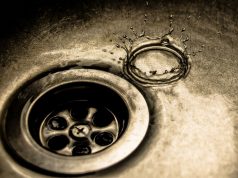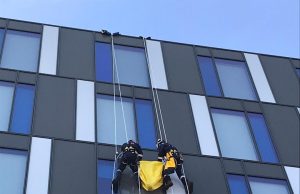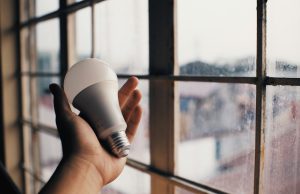
Safety should be a priority in every home. Prevent safety hazards like electrocutions and house fires by having the responsibility as a homeowner to understand electrical safety principles and adhere to them.
When it comes to using electrical appliances inside your houses, these safety tips will help:
1. Ensure that your appliance is of quality
When buying electrical devices, look for the approval of reputable consumer testing laboratories like Underwriters Laboratory (UL). Testing laboratories ensure that home appliances comply with recognized standards of safety. These labs usually provide electrical safety tips on the product so be sure to read on it as well.
2. Observe proper electrical cord handling
Regularly check your electrical appliances’ cord for splints, cranks, and frays before and after each use. If found damage to the wire, repair or replace it immediately. Don’t plug the cords loosely. If need to put a cable in place, always use electrical tape and not stapler or nails.
3. Do not use electrical appliances near water
As water is an electric conductor, it’s best to keep all electrical devices away from bathtubs, sinks or pools. Don’t ever touch appliances when your hands are wet.
In events where an electrical appliance is immersed in water, never pull it out off the water. Turn off first the power source immediately then unplug the device.
4. Unplug unused appliances
Appliances even if turned off, keeps drawing power. It’s better to unplug them to cut off power supply entirely and prevent appliances from overheating. And when you’re unplugging cords, always hold the cord at the outlet, not on the wire itself.
5. Do not overload your sockets
According to the National Fire Protection Association, overloaded electrical outlets are a primary cause of home fires. To prevent this, never use extension cords or converters on your appliances. Overreliance on extension cord indicates that you’re short of wall outlets. If needed, have a qualified electrician to add new outlets to your home.
6. Use proper light bulb wattage
Don’t ignore a simple house fixture like light bulbs when it comes to safety. Did you know that using higher wattage bulbs can cause overheating which then leads to house fires?
When replacing light bulbs, always make sure to turn off the fixture and screw the bulb tightly. Proper light bulb replacement will prevent short circuits and sparks.
7. Always consult with an electrician
If you are unsure what to do when you have encountered an electrical problem, call a qualified electrician. Going DIY when you are not sure what to do may cause much more severe electrical hazards in the future. Sometimes, some things are better off taken care by experts, and that includes your electrical problems.
Conclusion
Electrocution and fire hazards caused by electrical problems are preventable. As a homeowner, it is your responsibility to be aware of these electrical dangers around your home. Having an electric safety training for you and your family will greatly help in ensuring the safety of your home from electrical hazards.













